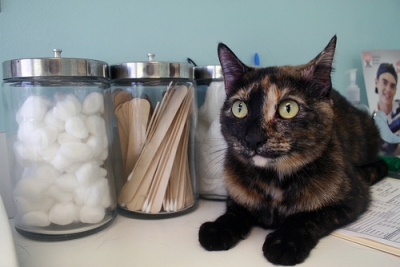
Dogs and horses, more than cats or other pets, have allergic reactions to insect stings and bites. This is probably because they are outdoors more than other pets, especially during the spring and summer months or in warm/hot climates where insects abound.
Pets can have allergic reactions to vaccines, insect bites and stings or for unknown reasons. Reactions can be mild to severe and it’s best to be prepared and know what to do.
With mild reactions there may be fever, weakness, inappetance, the areas affected can be itchy. Usually no treatment is necessary and the reaction clears fairly quickly.
With moderate reactions urticaria can result. Urticaria or hives is a hypersensitivity and/or allergic reaction to insect bites or stings, drugs or something the pet ate. Hives or weals appear along with redness and swelling of lips, face, eye area and neck. Those areas affected can be very itchy.
Anaphylaxis which while not common, can follow and it is life-threatening. Anaphylaxis is a severe reaction that occurs suddenly within minutes of an insect bite. Symptoms are breathing difficulties, rapid drop in blood pressure, vomiting, diarrhea, swelling of the larynx causing an obstruction of the airway, seizures, heart failure and death.
Anaphylaxis or urticaria occur due to the immune system sending out antibodies in response to the insect venom. Basophils and mast cells (both inflammatory cells) release a substance causing the allergic reaction.
If your pet has an anaphylactic reaction, it is an extreme emergency. Take your pet immediately to your veterinarian or the nearest emergency clinic.
Treatment can include opening an airway, intravenous fluids, oxygen and drugs (coricosteroids such as prednisilone or dexamethasone).
If you are aware that your pet suffers from allergic reactions, you should keep medications such as Benadryl as prescribed by your vet on hand. There is also a special syringe called an epi-pen that contains a dose of epinephrine to keep as well. Ask your vet about it. Don’t use any medications without your vet’s okay. Always check expiration dates of medications and renew when necessary.
After giving your pet a dose of medication, take him/her immediately to the vet, animal hospital or emergency clinic for further treatment.
Related Articles

